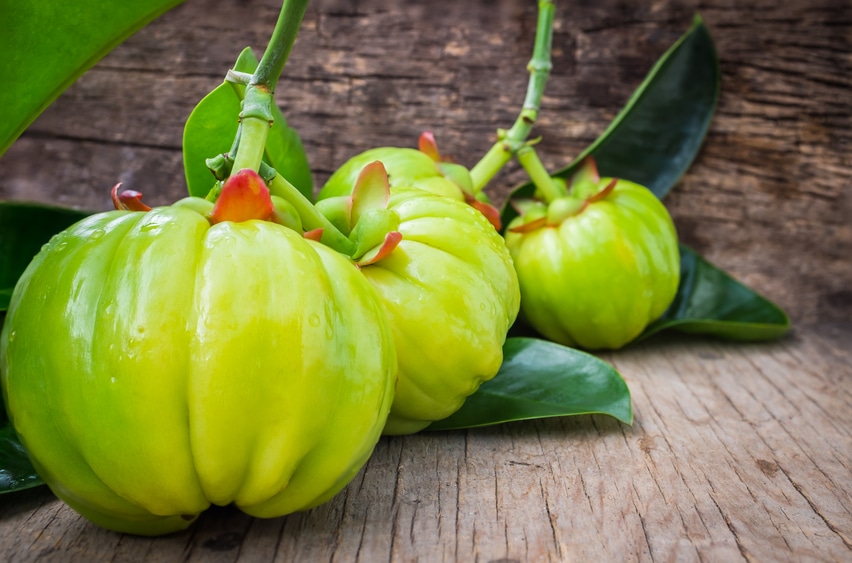Kidney stone sufferers often describe the pain as the worst they’ve ever felt. Some women say it’s even worse than childbirth.
And current treatments and preventive measures don’t work very well.
But now researchers say they have discovered that a natural fruit extract stops kidney stones.
What’s more, unlike mainstream medicines and procedures, it has no undesirable side effects. Excited researchers say it is the first substantial advance in kidney stone treatment in 30 years.1,2
Kidney stones are created when calcium oxalate crystals form inside the kidneys. They can get stuck in the urinary tract. This can cause blockage and tremendous pain. “Passing a stone” can be so excruciating that over-the-counter pain relievers like acetaminophen and ibuprofen don’t help.
Doctors often use powerful opioids such as Percocet or Vicodin. As we’ve told you, these carry the risk of overdose, addiction, and heart trouble. In severe cases, patients are given intravenous morphine or Dilaudid.3
If the stones don’t pass on their own, they may be broken up with sound waves. This is called lithotripsy. Another treatment uses a small scope threaded through the bladder to reach and remove stones. In some cases, surgery is required.
Recommended for You: You don’t have to dribble like a baby. Now you can pee like a man.
Remember when your stream was so strong that the toilet water would froth and bubble? You can have that again. Discover the medieval secret to putting the “muscle” back in your output HERE.
All of the options range from unpleasant to dangerous.
And even if you pass a kidney stone, you’re not out of the woods. People tend to get them repeatedly. They often run in families.4
If you have a kidney stone, you have 50% chance of getting another within five years. The risk is 80% within 10 years.5
Doctors often tell people at risk of kidney stones to drink lots of water and avoid foods high in oxalate. These include spinach, almonds, okra, and rhubarb. They may also tell patients to take potassium citrate. It can slow the growth of stones but it doesn’t stop them. And it has side effects. These include nausea, vomiting, and diarrhea.
None of these preventive measures work for a high percentage of patients.
Game-Changer for Kidney Stone Sufferers
Researchers at the University of Houston decided to look for a better way. They wanted to see if a natural compound called hydroxycitrate (HCA) would be more effective. HCA is a citric acid derived from brindle berries or tamarinds.
What they found astonished them. And it could change the treatment of kidney stones forever.
When they started the experiments, they hoped that HCA would be a natural alternative to potassium citrate. They hoped it would stop kidney stones from growing. Instead, lab experiments showed HCA actually dissolved the crystals. This was unexpected. The findings were so surprising, they repeated the experiments to make sure the results were correct.6
Then they tested HCA on a small group of human subjects. Tests showed the supplements inhibited kidney stone formation in people prone to them. Wider human tests are now being planned.7
Here’s more good news: Hydroxycitrate supplements are already available at health stores and online. They have no adverse side effects. So even before more extensive testing is completed, kidney stone sufferers have nothing to lose by taking it now.
Some natural health experts say HCA has other benefits. Proponents say it helps with weight loss, relieves joint pain, makes bowel movements regular, and increases athletic performance. But these claims have not been verified in studies.8
The recommended dosage is 500 mg taken 30 to 60 minutes before a meal three times per day. Kidney stone patients should check with their doctor before taking HCA.
In Good Health,

Angela Salerno
Executive Director, INH Health Watch
Like this Article? Forward this article here or Share on Facebook.
References:
1https://consumer.healthday.com/diseases-and-conditions-information-37/kidney-stone-news-433/briefs-emb-11-a-m-aug-8-nature-new-treatment-for-kidney-stones-713647.html
2http://www.uh.edu/news-events/stories/2016/July/08082016New-Treatment-for-Kidney-Stones.php
3http://www.healthcommunities.com/kidney-stones/pain-medications.shtml
4https://www.kidney.org/atoz/content/kidneystones
5http://www.uwhealth.org/urology/how-common-are-kidney-stones/11208
6http://www.uh.edu/news-events/stories/2016/July/08082016New-Treatment-for-Kidney-Stones.php
7http://www.nature.com/nature/journal/vaop/ncurrent/full/nature19062.html
8https://examine.com/supplements/garcinia-cambogia/

